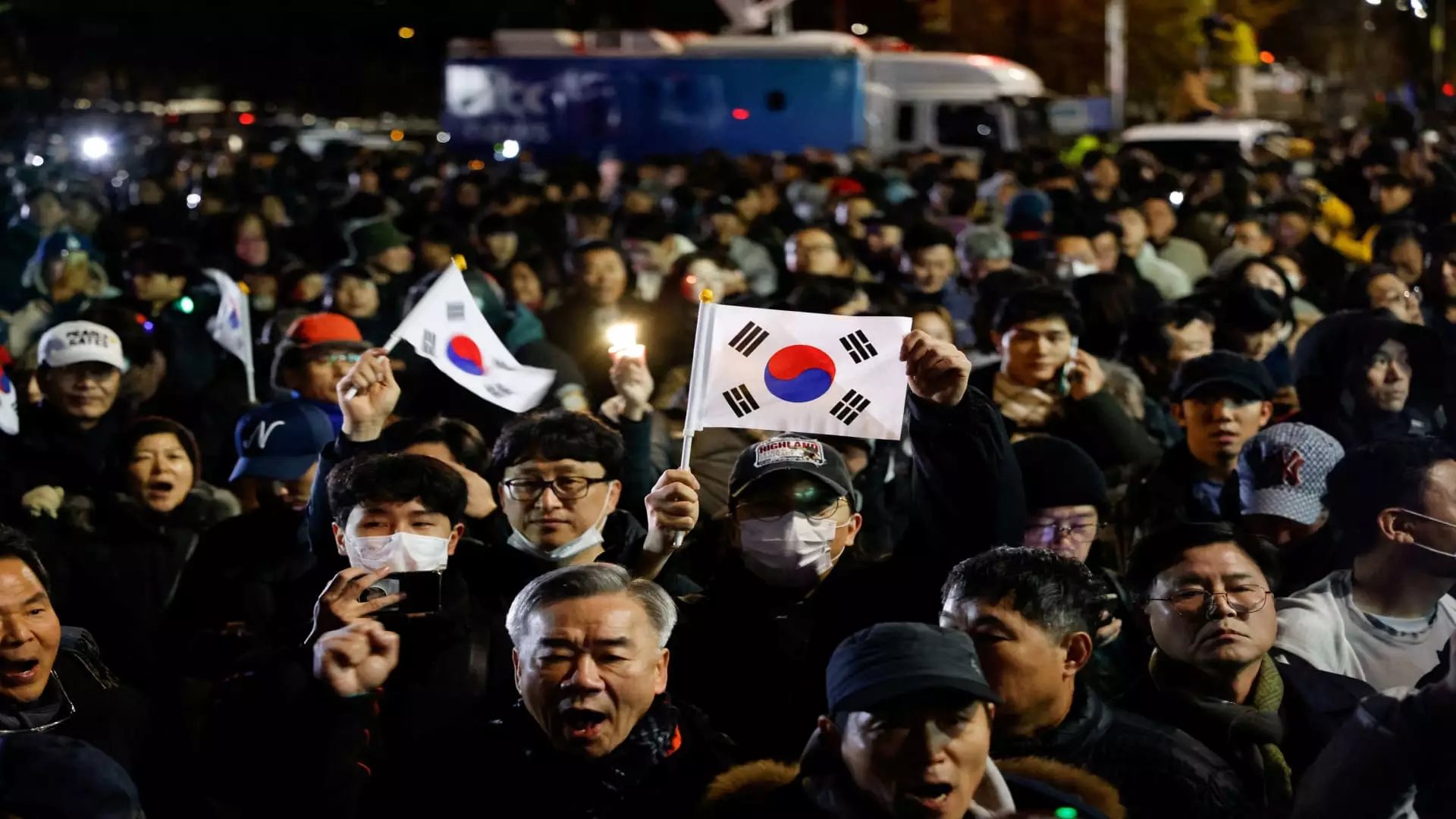On Wednesday, South Korean financial markets opened amidst considerable unrest, illustrating the delicate interplay between governance and economic stability. The Kospi index faced a significant drop of 1.8%, while the Kosdaq recorded an even steeper decline of 2.4%. This downturn came on the heels of political upheaval as President Yoon Suk Yeol faced mounting pressure from protestors and opposition lawmakers. The situation escalated when Yoon hastily imposed a martial law declaration, only to rescind it within a few hours—a move that drew intensified calls for his resignation. This rapid oscillation in governance can erode investor confidence and amplify market instability.
The Consequences of Political Decisions
Reports suggest that a coalition of opposition lawmakers is poised to introduce an impeachment bill against President Yoon, which, if expedited, could lead to a vote within 72 hours. Such a drastic political maneuver creates an environment of uncertainty that typically deters investment. In a further twist, key members of Yoon’s administration have indicated a willingness to resign en masse, hinting at a potential power vacuum and instability within the leadership structure. The specter of potential long-term governance issues casts a shadow over South Korea’s economic climate.
In response to these events, the Bank of Korea convened an emergency board meeting, announcing plans to enhance short-term liquidity in the financial markets. The central bank’s pledge to provide necessary loans and stabilize the foreign exchange market is an attempt to mitigate immediate fallout from the political crisis. Additionally, substantial resources, approximately 10 trillion won (around $7.07 billion), have been earmarked for a stock market stabilization fund. Such measures highlight the urgency of maintaining economic stability amidst political turmoil.
The unrest in South Korea did not exist in isolation; it reverberated through other Asia-Pacific markets. Japan’s Nikkei 225 and Topix both experienced declines of 0.4%, while Australia’s S&P/ASX 200 fell by 0.38% as weaker-than-expected GDP data added to investor concerns. In the midst of this regional unease, the Hang Seng index in Hong Kong eked out a minor gain of 0.1%, indicating a complex sentiment among investors in the area.
Meanwhile, U.S. investors also reacted to the political volatility. The iShares MSCI South Korea ETF (EWY) plummeted by 7% during the day, hitting a new 52-week low, though it managed to recover some losses by closing the day down only 1.6%. This fluctuation reflects a growing anxiety among international investors regarding South Korea’s governance and its impact on economic trajectory.
The unfolding political crisis carries significant implications for South Korea’s economic future. With opposition parties mobilizing for an impeachment bid and concerns over the soundness of governance, investor sentiment may continue to be fragile. Economic indicators such as currency strength and stock performance are intimately tied to political stability; thus, South Korea’s leaders face a dual challenge. They must navigate immediate political pressures while also restoring faith in their economic policies to foster a conducive investment environment.


Leave a Reply